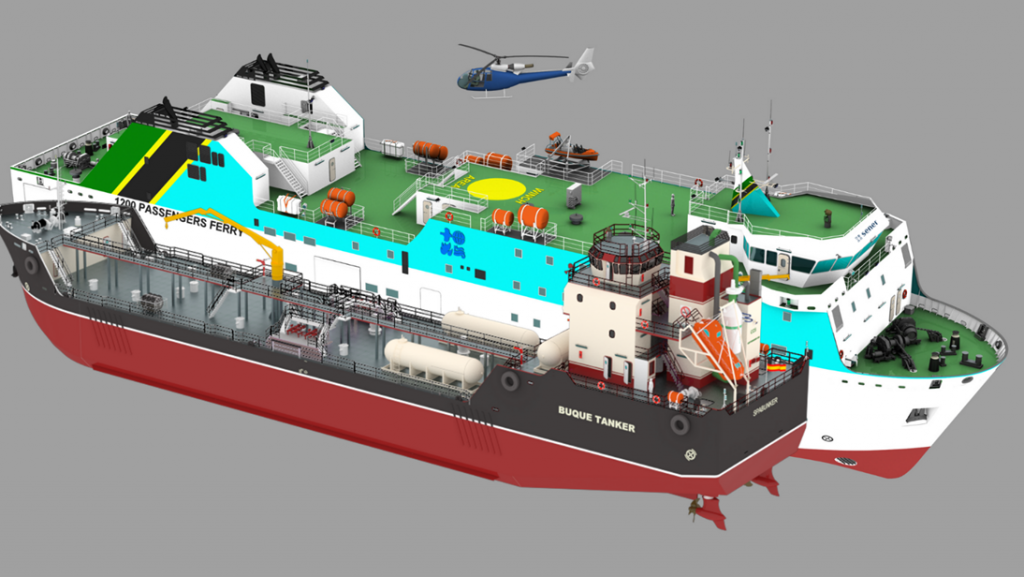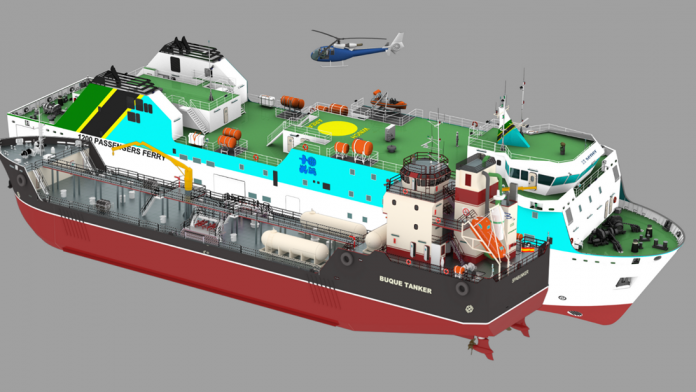
Technology and engineering group Sener has completed the conceptual design of a new model of sustainable tanker that can carry heavy fuel oil (HFO), very low sulfur fuel oil (VLSFO), biofuels and marine gas oils (MGO), and can also store the captured CO2 from nearby vessels.
According to Sener, the design features a complete emission reduction and management system made up of a CO2 capture and storage system, a selective catalytic reduction or SCR system (process to convert nitrogen oxides into diatomic nitrogen and water, with the help from a catalyst) and a sulfate cleaning system.
It is also set up to store the CO2 captured by other vessels in the vicinity and it includes different technical-economic configurations to help shipowners select the best alternative based on their priorities and needs, such as costs, ease of installation on board, or safety, the company said.
Sener also emphasised it is working to develop innovative technologies that can contribute to the decarbonisation of the sector. For example, it claimed it has conducted feasibility studies with its customers to analyse the generation of hydrogen on board their fleets through a multi-product reformer that could work with ethanol, methanol or ammonia.
Roberto Fernández Pascual, Director of the Naval Business Unit at Sener, commented: “At Sener, we believe that research and development on innovative technologies that will help us achieve this efficiently is essential if we are to satisfy the IMO and EU demands in this regard. Fleet analysis is a tool to optimise technical and economic resources to help shipowners and shippers in this transition.”
In regard to this year’s activities, Sener’s endeavours include LNG projects. The company awarded TGE Gas Engineering and Technodyne International Limited a contract for the outer tank design for the LNG storage tanks for German LNG Terminal GmbH.
The terminal is located in Brunsbüttel, by the Elbe River in the North Sea, Germany, and is expected to export up to 8 BCMA (billion cubic meters per year) of natural gas to the national network, with an option of further expansion to 10 BCMA.
Source – https://www.offshore-energy.biz by Aida Cucuk




